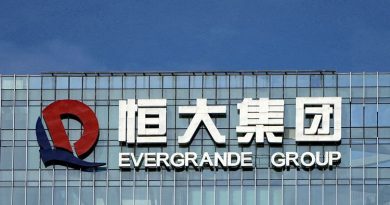Censorship in the Digital Era: Examining the Role of Social Media in Shaping Political Dynamics
Madeline Kruszczynski
Digital Editor
In the digital age, the intersection between social media, free speech, and government oversight has become increasingly complex, resulting in conflicts and tensions felt worldwide. An example of this dynamic can be observed in the events surrounding social media usage during the January 6 Capitol insurrection. After losing the 2020 presidential election, former President Donald Trump harnessed X, formerly known as Twitter, to propagate claims of electoral fraud, ultimately galvanizing his supporters to converge on Washington, D.C., leading to violent confrontations at the Capitol, as reported by The Washington Post. The aftermath of these events prompted a nationwide dialogue about the role of social media platforms in moderating content and the extent of their accountability for user actions. As tech leaders like Elon Musk champion a “free speech absolutist” approach, governments worldwide have reacted with measures aimed at regulating digital communication to prevent the spread of misinformation and extremist ideologies. The situation in Brazil, where Supreme Court Justice Alexandre de Moraes ordered the suspension of Musk’s platform, highlights the global struggle over censorship and the balance between maintaining democratic ideals and upholding individual freedoms, according to the BBC. Alongside this debate is Pavel Durov, founder of Telegram, whose commitment to user privacy has sparked controversies over the platform’s role in facilitating harmful content. As the relationship between governments and tech companies becomes increasingly connected, they raise essential questions about the responsibilities of social media companies, the implications for free expression, and the necessary boundaries of censorship in preserving both safety and innovation.
Elon Musk has become a central figure in the discussion surrounding social media censorship, particularly due to his commitment to a “free speech absolutist” policy, as reported by Bloomberg. This stance has led to numerous arguments with government leaders worldwide, most notably in Brazil, where tensions culminated in the recent ban of the platform throughout the entire nation. This action, highlighted by The New York Times, represents a significant escalation in a dispute that has persisted for over two years, originating in 2022 when Musk acquired X.
On August 31, Brazil’s Supreme Court Justice Alexandre de Moraes ordered the suspension of X, blocking access for over 21 million users, as reported by PBS. This decision reflects ongoing tensions between Elon Musk and the Brazilian government over issues of censorship and the absence of a local X representative, according to The BBC. Justice de Moraes has previously forced various social media platforms to suspend accounts considered threats to Brazil’s democracy, although such requests are generally handled discreetly, behind the public eye. However, X’s government affairs team released documents detailing these requests, which included the removal of 19 accounts linked to right-wing influencers and lawmakers. This development highlights the broader global struggle over censorship, illustrating the influence of social media on political dynamics and the ongoing tensions between government regulations and the principles of free speech.
A similar case where Musk’s decisions on censorship have impacted government officials and elections took place after the 2020 United States election. On December 23, 2020, after losing the presidential election to Joe Biden, former President Donald Trump posted, “Statistically impossible to have lost the 2020 Election,” followed by, “Big protest in D.C. on January 6th,” and ultimately encouraged his supporters with, “Be there, will be wild!”, as recorded in The American Presidency Project. Many politicians viewed these posts as incitement to violence, which appeared to culminate in the January 6 storming of the U.S. Capitol. Participants in the riot later described being motivated by Trump’s call, with one stating, “He basically put out, you know, come to the ‘Stop the Steal’ rally… and I felt like I needed to be down here,'” NPR reports.
During the investigation of the January 6 Capitol insurrection, many court discussions centered on the role of social media in the events leading up to the attack. Representative Bennie G. Thompson (D-Miss.), chair of the House of Representatives Homeland security committee, sought to uncover “how the spread of misinformation and violent extremism contributed” to the insurrection, as reported by The Washington Post. The committee also examined the actions taken by tech companies to determine what measures, if any, were implemented to prevent their platforms from becoming breeding grounds for radicalization and violence. Former vice president under Donald Trump, Mike Pence, remarked that Trump’s use of X to incite violence was “reckless,” according to CNN Wire. An anonymous X employee explained to the committee they saw a rise in violent rhetoric online following the tweet, according to investigations presented by The BBC. Many court cases during the aftermath of the insurrection included the criminals being motivated by the tweets, showing a direct correlation to the tweets from Trump, and the violence on the capital. However, during the insurrection, X was not owned by the current owner, self-proclaimed free speech absolutist Elon Musk, who purchased X in 2022, as reported by The New York Times.
The scrutiny faced by X in both Brazil and the United States raises essential questions about the relationship between social media and government in the digital age. The events surrounding former President Trump’s posts and Musk’s lenient approach to content moderation exemplify how leaders can leverage social media to shape public opinion and mobilize their supporters. As both nations struggle in balancing the complexities of misinformation and free speech, the outcomes of these conflicts will significantly influence global discussions regarding censorship and the regulation of digital platforms.
Another notable figure in this discourse is Pavel Durov, a billionaire tech founder with a complex background, holding citizenship in France, Russia, the Caribbean Island nation of St. Kitts and Nevis, and the United Arab Emirates, as reported by AP News. However, he primarily resided in Russia, where he founded VKontakte (VK) in 2006, a social media platform recognized for its strong privacy protections, which also facilitated various forms of criminal activity among its users. In 2014, under pressure from the Russian government regarding censorship and demands for access to sensitive information, Durov made the decision to sell his shares in VKontakte and leave the country, as reported by The Moscow Times. In explaining his decision, Durov articulated, “The freedom to disseminate information is the essential right of a postindustrial society. Without this right, the existence of VKontakte makes no sense,” highlighting his commitment to free expression. Following this, in 2013, Durov launched his second venture, a messaging platform known as Telegram.
Telegram is an app founded on Pavel Durov’s advocacy for privacy and free expression, particularly in the face of governmental pressures. While similar to VK in its strong security measures, Telegram functions primarily as a messaging platform, enabling global communication in chat rooms that can include up to 200,000 participants. This significantly exceeds that of comparable apps like WhatsApp, which limits group chats to 1,024 users, as reported by the Associated Press. However, experts express concerns that larger groups facilitate the rapid and dangerous spread of misinformation.
The app employs end-to-end encryption to prioritize user security, which, while safeguarding personal communications, has also allowed a haven for criminal and extremist activities. However, this feature is not by default, giving Telegram the choice to share requested personal information about users to the government. Nevertheless, reports indicate that content linked to terrorist organizations, such as videos from Hamas, as well as material from neo-Nazi groups and child pornography, have circulated on the platform, as highlighted by The New York Times and the Washington Post. Durov’s commitment to user privacy has led him to resist cooperating with governments worldwide in sharing information about criminal activities on Telegram.
This tension culminated in Durov’s arrest in France in August, on charges related to “child sexual abuse material, drug trafficking, fraud, money laundering, and abetting criminal transactions,” as reported by The New York Times. His arrest underscores the broader governmental actions surrounding social media censorship, challenging the narratives of freedom of speech championed by both Durov and Musk. Following Durov’s arrest, Musk expressed his support by tweeting “#freedurov,” as noted by Economic Times.
Durov’s arrest sets a significant precedent for a new era of social media censorship, raising questions that both he and Musk claim to address: To what extent are online platforms responsible for the actions of their users? Supporters of Durov and Musk argue that such developments are detrimental to global society. For instance, Proton Mail, a Switzerland-based email provider, characterized Durov’s arrest as “economic suicide” that is “rapidly and permanently changing the perception of founders and investors,” as reported by Al Jazeera. They would also argue that free speech is a human right, and through government infringement of data, this could put that right into jeopardy. This perspective underscores concerns that if technology companies face legal repercussions for their users’ actions, it could deter innovation and investment, ultimately stunting the global economy, as well as limit the rights of all people.
Conversely, there is an argument for the necessity of monitoring and regulation to mitigate outbreaks of violence, the spread of misinformation, and the spread of harmful propaganda or ideologies. Proponents of cautious censorship assert that responsible oversight can safeguard public safety, protect democracy, and foster a healthier online environment. By imposing certain constraints on content, platforms can help prevent the misuse of their services by malicious parties, striking a balance between freedom of expression and the collective good. Ultimately, the challenge lies in finding a middle ground that allows for innovation and free speech while also ensuring accountability and protecting society from potential harm.
Image courtesy of Getty Images


